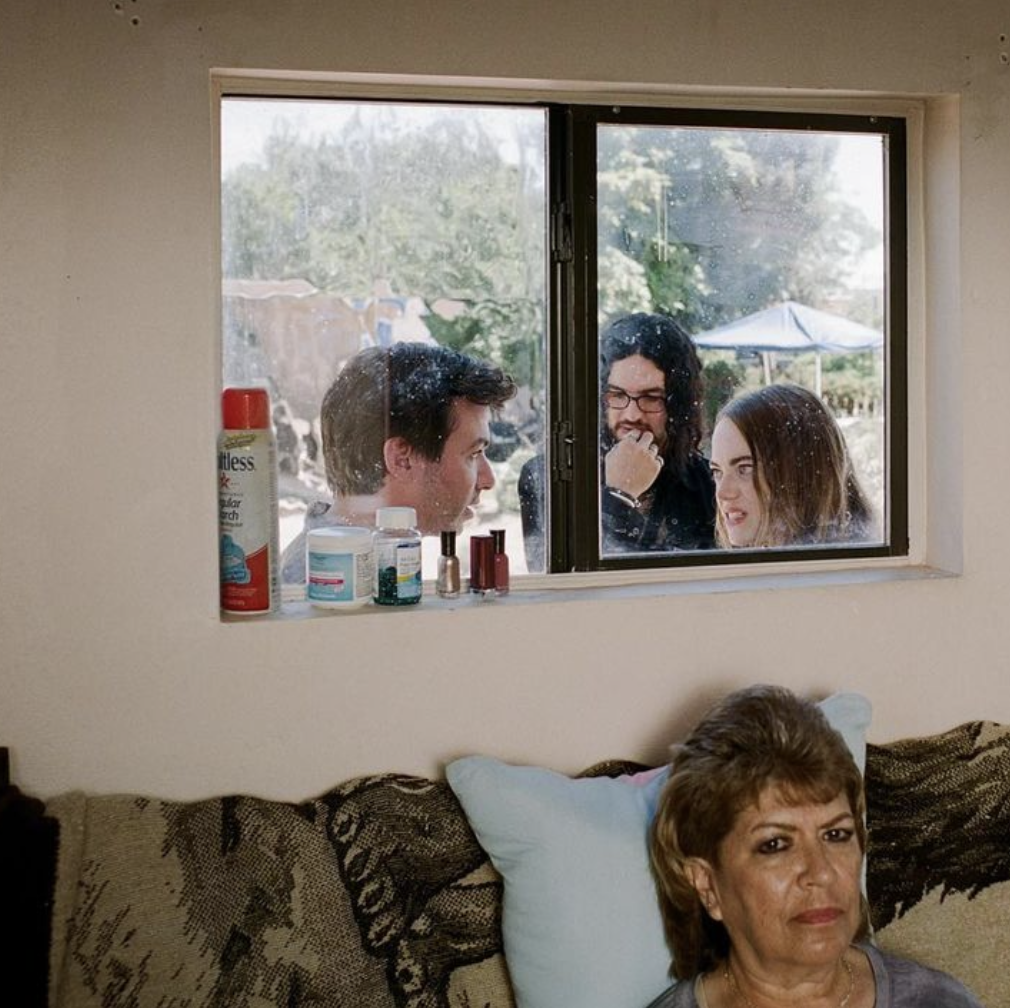Canada’s hottest it-boy, Nathan Fielder, returned to televisions on Nov. 10 with his Showtime miniseries “The Curse,” a satirical black comedy directed by Fielder and written by him and Benny Safdie (“Good Time,” “Uncut Gems.”) The A24-produced show follows newly-wed couple and house-flippers Whitney (Emma Stone) and Asher (Fielder) Siegel as they film an episode of their new show, “Flipanthropy,” for HGTV. The couple rebuilds homes with a focus on energy conservation and opens stores for the less-fortunate locals in the town of Espanola, New Mexico, while desperately trying to avoid being called “the G word”–gentrifiers.
Whitney and Asher are followed around by a camera crew led by producer Dougie Schecter (Safdie), a sleazy Hollywood type who is willing to exploit anyone and anything in order to get a hit—even at the expense of the Siegels. “HGTV trusts him. And we trust HGTV,” Asher comforts Whitney after Dougie uses an old woman for a “tear-jerking” scene for their show. The couple attempts to keep a clean-cut image despite their producer’s input and Asher’s god-awful decision-making.
For the first time, Fielder plays a character outside of his awkward self and gives a performance that is enough to stop you in your tracks and question, “Is that really the same Nathan Fielder from ‘The Rehearsal?’”Asher Siegel is short-tempered, selfish and–most notably–really stupid. Throughout the pilot episode, Asher gets himself into situations that are so cringy it’s almost hard to watch solely because he refuses to think before he speaks. The sixty-minute episode explores Asher’s relationship with Whitney and why he may snap at others but never excuses it.
Despite this being a left turn for Fielder, switching from his usual live-action to a scripted show, “The Curse” keeps the comedian’s dry and surreal comedy intact as he parodies the feel-good house flipping shows à la “Extreme Makeover: Home Edition.” It’s hilarious watching the Siegels interact with the normal citizens of Espanola as they attempt not to be “bad gentrifiers” despite building the ugliest modern homes ever seen in a charming Pueblo revival-style neighborhood.
There’s an underlying fear in “The Curse” that the camera may always be rolling; that someone with a camera can and will catch you at your worst moments. Shots where intimate conversations between the couples are filmed through peepholes and in hallways give the effect of always being watched and that things said in private may come back to bite you. As the Siegels grapple with fame and authenticity, it becomes a stark reflection of the viewer and how hypocritical being alive can be at times–and how thankful we are to have moments of peace where we’re not followed by a professional camera crew. For Asher, the moments caught on camera are bad but nowhere near as terrible as what’s going on behind closed doors. Everyone has skeletons in their closets, but none so damaging as what’s explored in “The Curse.”







